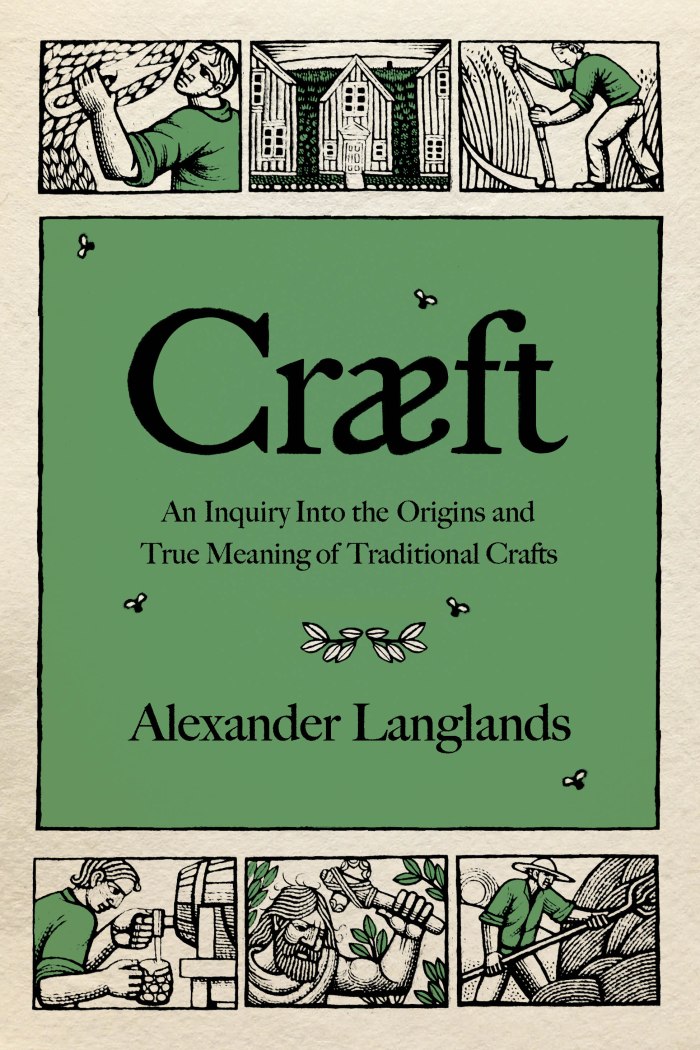In the midst of a seemingly endless supply of mass-manufactured products, we find ourselves nostalgic for products bearing the mark of authenticity—hand-made furniture, artisan breads, craft beers, and other goods produced by human hands. What often goes unnoticed is the transformation of our understanding of craft—or rather, craeft—in the wake of industrialization.
In Craeft, archaeologist and medieval historian Alexander Langlands argues that our modern understanding of craft only skims the surface. His journeys from his home in Wales have taken him along the Atlantic seaboard of Europe, from Spain through France and England to Scotland and Iceland in search of the lost meaning of craft. Reaching as far back as the Neolithic period, he combines deep history with scientific analyses and personal anecdotes. We follow the author as he herds sheep, keeps bees, tans hides, spins wool, and thatches roofs. We learn that scythes work much better on tall grass than the latest model of weed trimmers, that you can spin wool using a large wooden spoon, and that it was once considered criminal to work on animal hides before a requisite twelve-month soak.
When it first appeared in Old English, the word craft signified an indefinable sense of knowledge, wisdom, and resourcefulness. Rediscovering craft will connect us with our human past, our sense of place, and our remarkable capacity to survive in the harshest of landscapes. Craeft helps us more fully appreciate human ingenuity and the passing on of traditions from generation to generation.

- Hardcover
- January 2018
- ISBN 978-0-393-63590-4
- 6.6 × 9.6 in / 352 pages
- Sales Territory: Worldwide including Singapore and Malaysia, but excluding Canada, the rest of the British Commonwealth and the European Union.
“In Craeft, Mr. Langlands excavates the scintillating history of our truest super power: making clever things with our hands. This history is rife with real-life magic and affection, for our earth as well as one another. I am damn grateful for this book.”
— Nick Offerman, author of Paddle Your Own Canoe and Good Clean Fun
“Alex Langlands is probably the only person who could have written this wonderful book, drawing as it does upon his extraordinary combination of experiences as an archaeologist and as somebody who has actively learned such a huge range of the traditional crafts which he explains. This is literally heritage in action, and artistry which produces practical rewards.”
— Ronald Hutton, professor of British history, Bristol University, and author of The Triumph of the Moon
“Alexander Langlands is spot-on: crafting isn’t just about creating beautiful, useful objects. It’s about reclaiming the knowledge, wisdom, and power that link us to the collective history of civilization. Craeft is what makes us human.”
— Carleen Madigan, editor of The Backyard Homestead
“Erudite, deftly argued, well written, and timely—Langlands weaves together the basic human desire to use our hands to make things with tradition, landscape, and the natural world. A delightful book that should be widely read.”
— Robert Penn, author of The Man Who Made Things Out of Trees